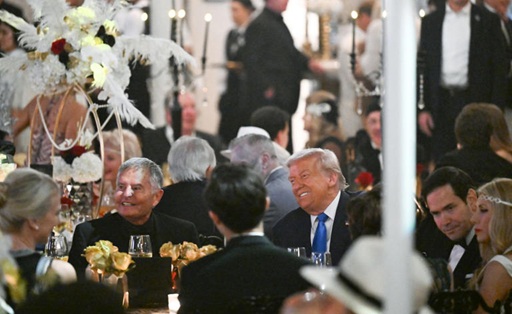If you live, like me, in The Guardian bubble, you will be heartened by the outspoken defence of the BBC in the last two days (The Guardian, 2025). But this defence clearly doesn’t come from all sides. Indeed, it was The Telegraph, a paper known for its significantly more right-wing stance, that leaked more and more of the internal memo criticising the BBC’s output, which was compiled by Michael Prescott, a former independent external adviser on the BBC’s editorial guidelines. Prescott in the past worked as journalist for the Sunday Times, another paper known for being to the right of the political spectrum, and he has advised a number of businesses, including BT and EE, on business affairs, including mergers (see Sky, 2025a). There’s increasing reporting, including in the international press (e.g. Tagesschau, 2025), that behind the pressure piled onto the BBC lies Robbie Gibb, a board member of the BBC who was also chief of communications for Theresa May – the former Conservative Prime Minister. Gibb was appointed to the board by Boris Johnson, another Conservative Prime Minister whose walk into a fridge to dodge a journalist’s question remains a good metaphor of his own lack of transparency and sense of accountability towards the people he was meant to govern. Johnson himself waded into The Telegraph’s attack last week to amplify the criticism of the BBC (LBC, 2025). Nick Robinson, who himself has faced criticism in the past for his historical connections to the Conservatives (The Independent, 2023), rebuked Johnson, which was followed by what can only be described as a pile on by the Conservative press (e.g. The Mail, 2025; The Telegraph, 2025).
Considering that Donald Trump has now threatened to sue the BBC (The Independent, 2025) and Nigel Farage has expressed his concern and spoken to Trump (Sky, 2025b), I think it is plain enough to see that what is happening is not a political bias-free criticism of the public service broadcaster who, undoubtedly, has made mistakes. To explore this further, we can trust the relevant newspapers (see above), podcasters (e.g. The News Agents, 2025) and other commentators (e.g. Alistair Campbell, 2025) to step into the breach. What I want to ponder here is the simultaneous experience of further voluntary and forced redundancies in higher education (see BBC, 2025; Wales online, 2025), and the underlying connection between the BBC and Higher Education crises.
The problems in higher education in the UK have their roots in the changes to funding that originated under the Labour Party who first introduced tuition fees as well expanding the university system to enable the broadening of access to university (Miller, 2010). As Brian Miller (2010) shows, this development was part of a conservative view on higher education which understands a university education in relation to graduate outcomes in terms of salaries earned against which he placed a different view that recognises the role of higher education in social mobility and other social outcomes. Under New Labour, the £3,000 per year cap meant that students paid a contribution to the costs of their degrees. Under the Coalition Government of 2010 and then the Tory Government of 2012, the bulk of funding was transferred to the students as the fees rose to £9,000 and then £9,250 from 2017, a level at which they were kept until 2024. Since then, universities have been fighting to recruit as many students as possible, ideally from abroad as these students bring in significantly more money. In light of tightening visa rules and a stream of reporting on the (lack of) value of degrees, particularly in the humanities (e.g. BBC, 2017), and in the context of high inflation, this has meant that the university sector in the UK is facing mass redundancies in order to balance its increasingly volatile books.
However, explaining the crisis in higher education purely through a financial lens overlooks the fact that this financial instability goes along with a weakening of the quality of university education and the university’s role in developing knowledge and fostering a culture in which knowledge and education themselves are seen as socially and culturally valuable. The mass redundancies in higher education in the UK go along with a need for those left behind to cover more of the teaching. At the same time, the shift towards knowledge exchange, education for industry needs (see White Paper, 2025) and research for impact emphasises the utility of knowledge for business, industry and – when lucky – the social and physical wellbeing of our society in favour of something less tangible: namely that value of a well-educated and knowledgeable society itself.
It is here that the overlap with the attack on the BBC and public service broadcasting becomes most visible. As David Hendy reminds us, when the BBC was established in the 1920s, the question of ‘how to create an informed and cultured modern democracy; and how new kinds of mass media might help in that task’ (2013: 7) were at the forefront of contemporary debates. Hendy in particular points to the influence of Matthew Arnold’s Culture and Anarchy (1869). It is worthwhile quoting Hendy at length in his summary of Arnold:
Like many of his contemporaries Arnold was worried by the mob, convinced it was never more than a hair’s breadth away from open revolt. But he detected a wider crisis. There was, he said, a self-indulgent tendency among all classes to do as one pleased: to do rather than to think; to be what one was rather than to strive to be better. The toiling masses – ‘raw and half-developed’ – could hardly help themselves. Yet, the aristocracy were just as busy indulging their own pleasures, while the middle classes and the ‘rising’ working class were ‘Philistines’: stiff-necked, lacking curiosity, self-satisfied. Anarchy beckoned – or, in the ruling classes’ overreaction to the threat of anarchy, autocracy. A road to salvation, however, lay with culture. Arnold defined this, not as something which belonged to the elite, nor as a mere thing for its own sake’. Culture was ‘the study of perfection’, a pursuit of wisdom and beauty – or, as Arnold liked to put it, of ‘sweetness and light’. Anyone engaged in this pursuit would transcend their base instincts and find their ‘best self’ (2013: 14).
As Hendy highlights, this improvement was not understood in relation to the individual – rather the vision Arnold put forward was one of an improved overall society in which class divisions were reduced and individualism was abandoned. Indeed, Arnold cautioned that individualism was deeply connected to a prioritisation of the base instincts he rallied against.

A photograph taken at the Great Gatsby Halloween Bash hosted by Donald Trump (Image APF/Getty)
Arnold’s vision, then, as laid out here, can be understood to be prophetic. While the revolt of the working classes has not materialised, the base instincts of the ruling classes are now much on display (e.g. Trump’s recent Great Gatsby bash, see image above) and have indeed led to autocracy in more than one country. Figures like Nigel Farage and Tommy Robinson in the UK or Javier Milei in Argentina, who are often funded more or less directly by other figures in the ruling classes (e.g. New York Times, 2025; Reuters, 2025), help divert the base instincts of the working classes away from the increasing inequality from which the ruling classes clearly profit. All of this happens in the context of neoliberalism which emphasises individualism and thus creates a vicious cycle of deregulation, appeal to base instincts, undermining of social institutions, and greater focus on individualism.
Institutions such as the BBC and higher education are places where the appeal of neoliberalism is less self-evident. These institutions put forward alternative conceptualisations of society connected to the less tangible understanding of knowledge and culture that provides the basis for the betterment of society as a collective. Universities remain committed to the development of knowledge that makes us as a whole better, be that by developing medical insights, understanding our economy or historical and contemporary visions of what it means to be alive as a human being. The BBC is, like universities, not flawless, it strives to give citizens the knowledge to make informed decisions about all aspects of life, including introducing them to elements of culture they may not have otherwise come across. Destroy those institutions and you destroy two key places where Arnold’s vision of Enlightenment remains alive. By obliterating them, or at least wearing them thin, you can also undermine their alternative narrative of betterment against the constant call to submit to your base instincts put forward by representatives of your own ilk.
Elke Weissmann is Reader in Film and Television at Edge Hill University. She’s published a few books on transnational television drama and has written a few articles and chapters on feminism and TV and climate change and TV. She is an ECREA editor for Critical Studies in Television. She is currently co-editing a book with David Levente Palatinus on TV and Sustainability. She migrated to the UK in 2002 after realising that German television was as bad as she remembered.





